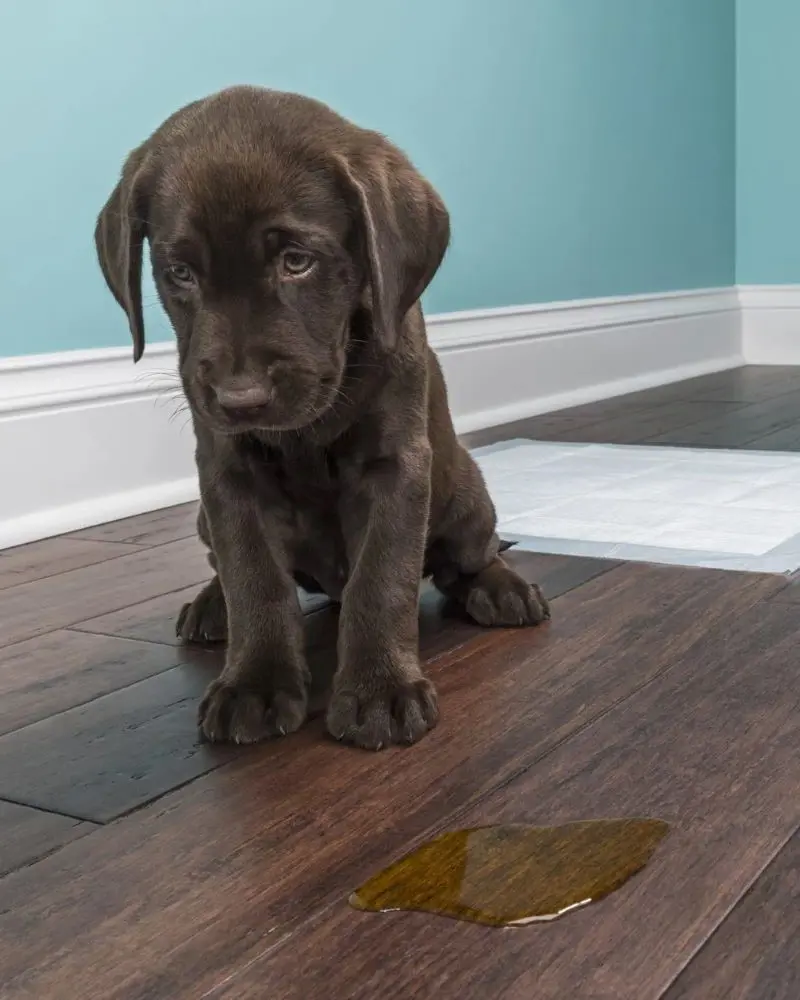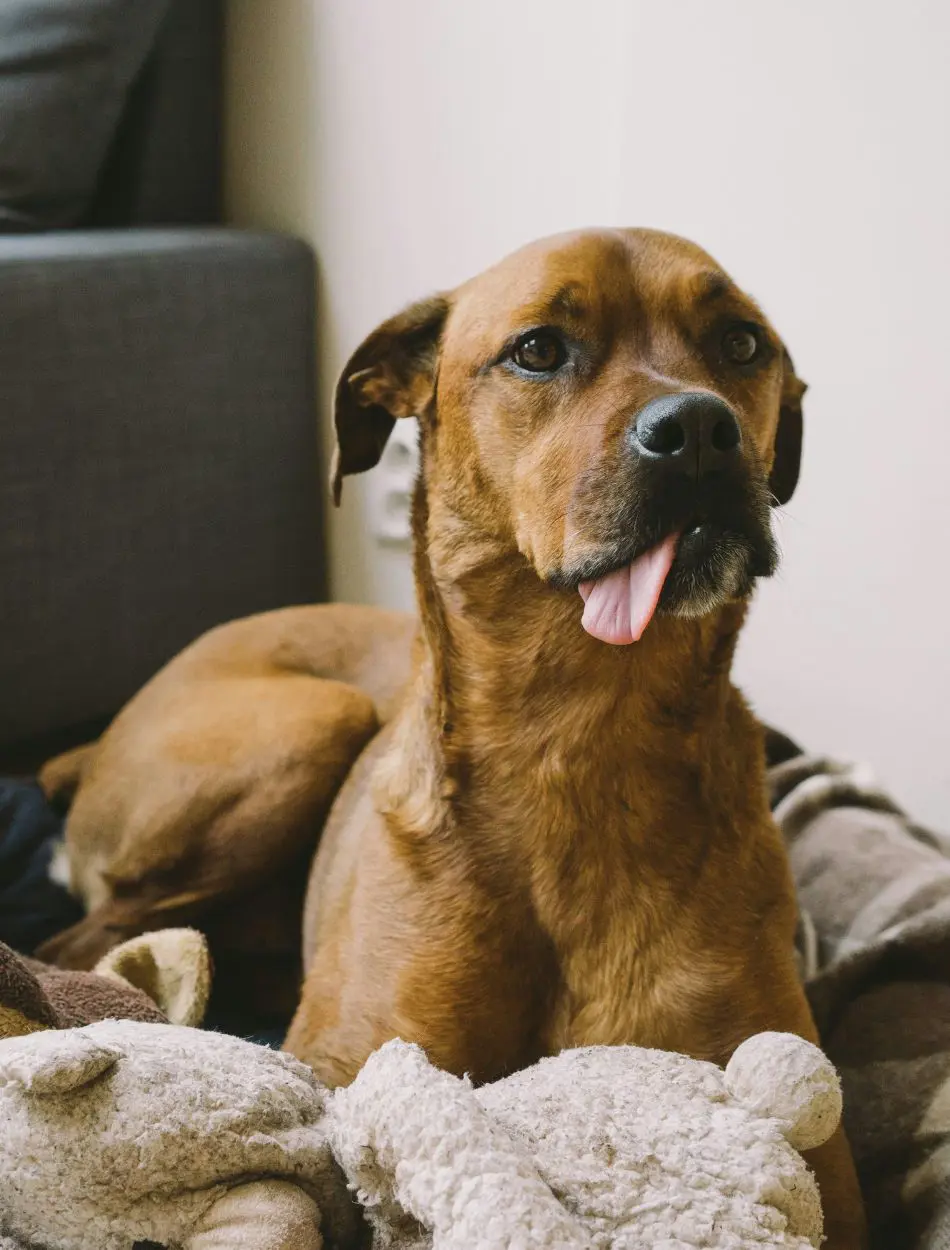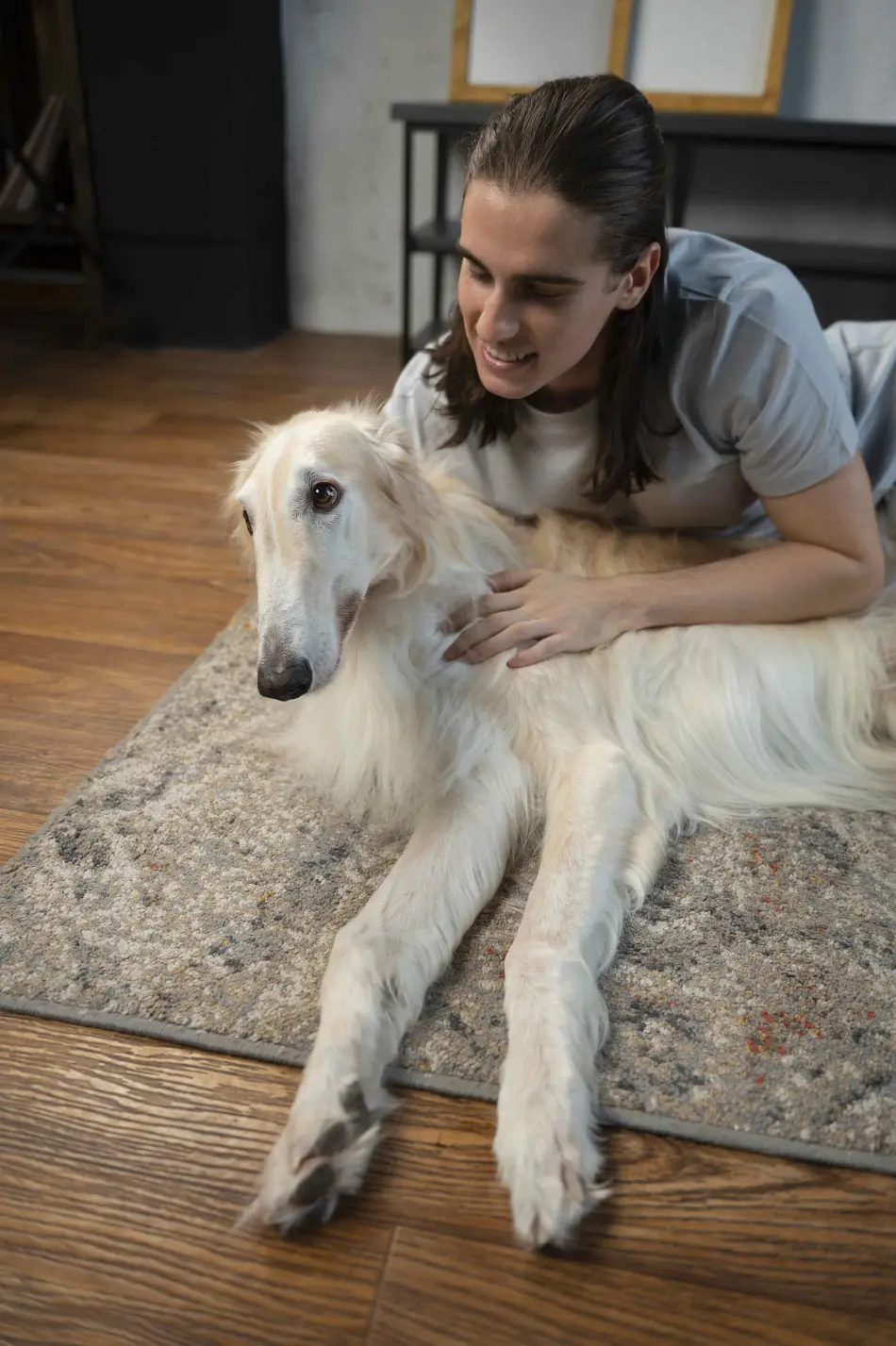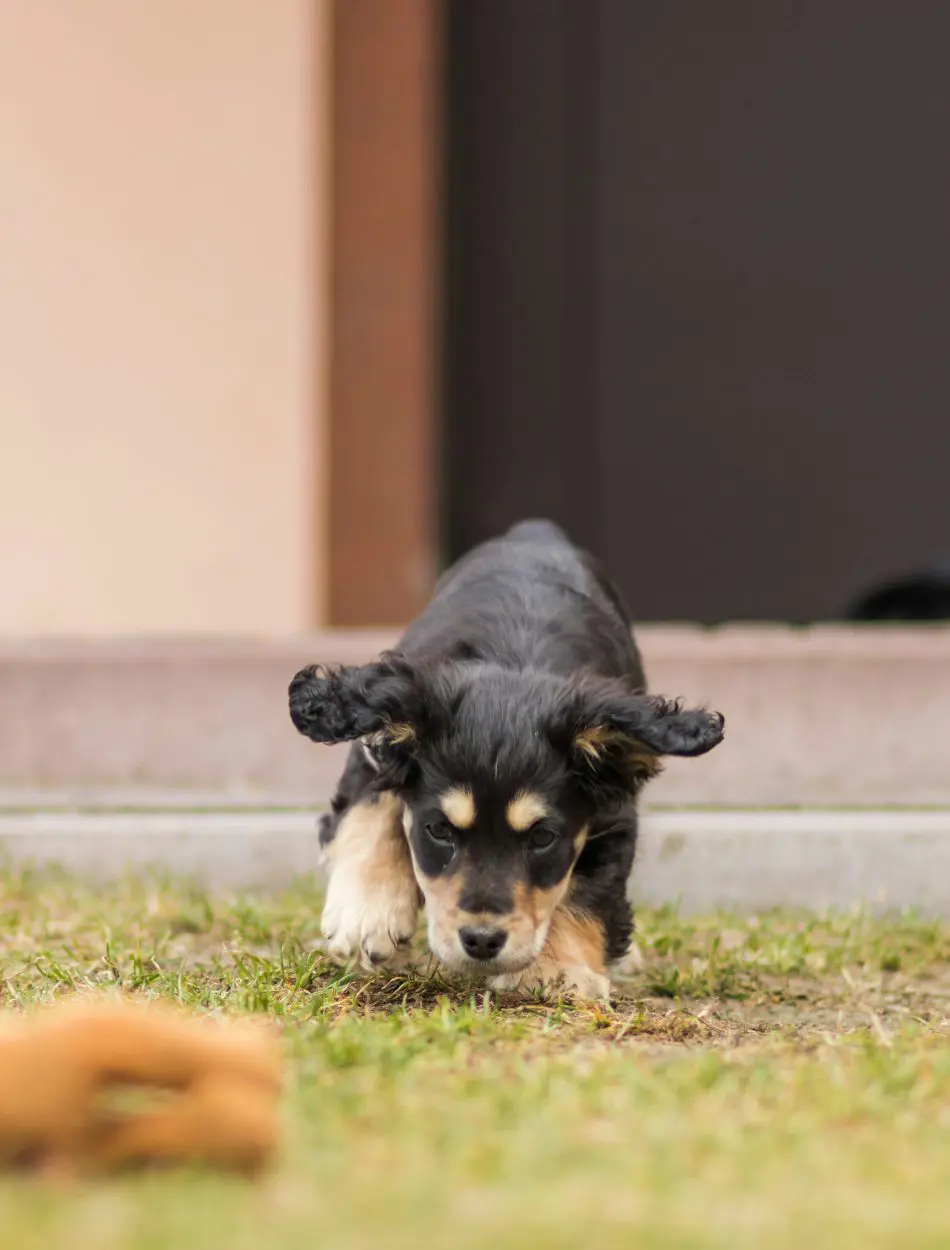18 Reasons Why Dogs Lick Your Feet
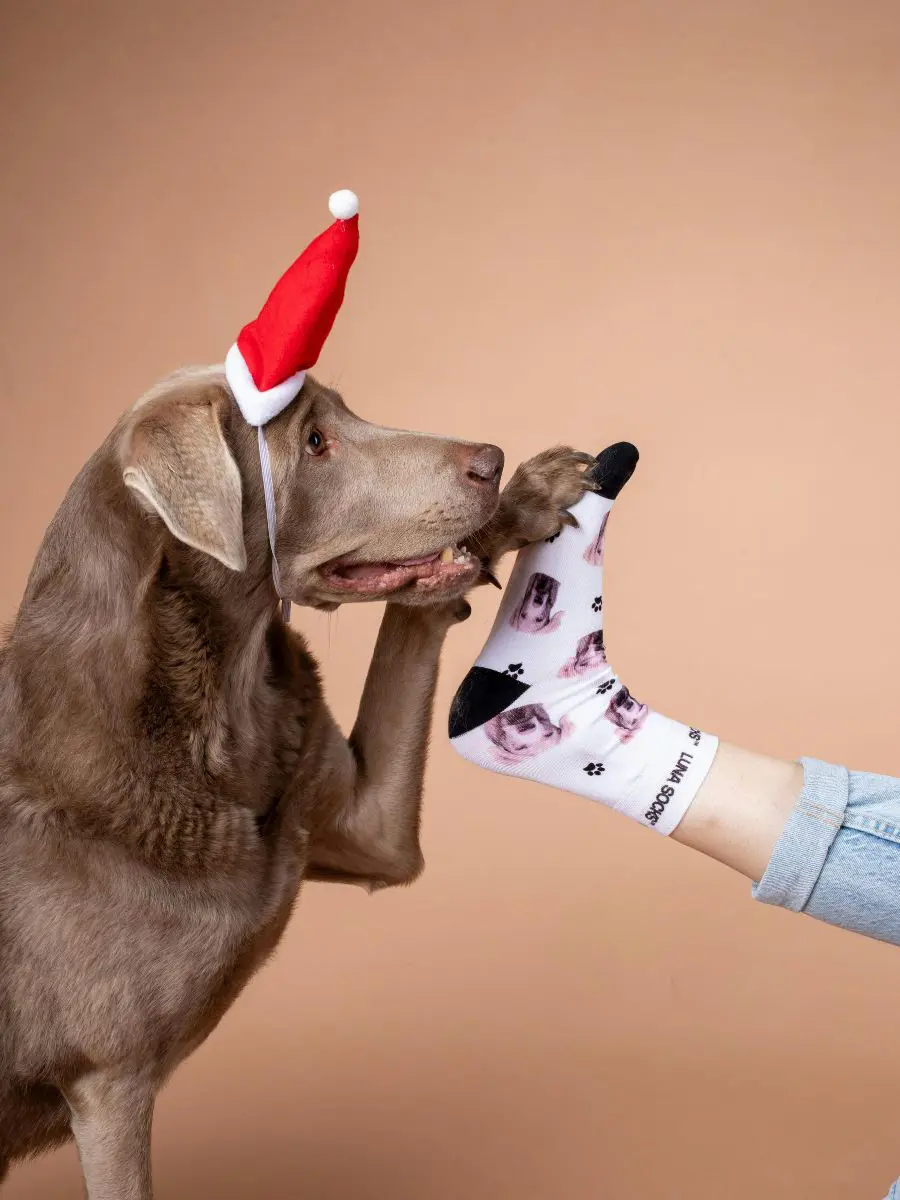
Dogs are fascinating creatures, and their behaviors can often amaze humans. One behavior that many dog owners notice is their canine companion licking their feet.
It can be a sign of affection or a way for them to show acceptance. Licking is also a way for dogs to explore their environment and gather information about us. Besides, some dogs might lick their feet because they enjoy the salty taste of sweat.
1. Affection And Bonding
Dogs licking their owners is often a heartfelt gesture of fondness and attachment. For dogs licking is a natural behavior used to express love and reinforce social bonds.
This spontaneous action originates from a wild pack of energy, where dogs lick each other’s faces as a sign of trust, friendship, and agreement. When your dog licks your feet, it's their way of communicating that they care deeply for you and view you as an integral part of their pack. This behavior is especially evident in how puppies lick their mothers' faces to solicit care and nourishment.
As they grow, this darting evolves into a way to interact with other dogs and their human family members. By licking your feet, your dog continues this tradition of showing tenderness and confirming their connection with you.
2. Seeking Attention
Dogs are highly opinion of their owners reactions and often improve their manners based on what they learn gets them recognition. If your dog has come across that licking your feet results in a positive response, such as you laughing, talking to them, or offering a belly rub, they may use this action to seek more interplay from you.
Licking can become an approach for dogs to engage you, especially if they’re feeling neglected or simply want more of your time. The repetitive nature of these efforts can be held up if you respond with affection or play.
Your dog's keen sense of how to elicit a reaction means they might persistently lick your feet to induce the desired attention or interaction. This behavior is often a form of communication, signaling that your dog is looking for a connection or engagement
3. Curiosity
Dogs are natural explorers, using their acute senses of odor and flavor to collect facts about their surroundings. Your feet, which come into contact with various surfaces throughout the day, carry a rich array of scents and tastes.
When your dog licks your feet, they are engaging in a form of environmental observation. Each surface you walk on leaves behind unique aromas and residues, from grass and dirt to the inside of your shoes. By licking your feet, your dog is collecting these sensory clues, repairing together a map of your recent activities and the places you've visited.
This behavior allows them to learn more about their surroundings and your interactions within it.
4. Grooming Behavior
Licking is an essential aspect of brushing behavior in dogs, rooted in their reflexing practices. In the wild, dogs engage in mutual tidying to maintain cleanliness and strengthen social bonds within their pack.
This effort serves both practical and social functions, helping to remove dirt and parasites while strengthening relationships. If your dog flits on your feet, they might be displaying this fixed grooming instinct. By treating you as part of their pack, your dog extends this manner to you, reflecting their view of you as a valued member of their social group.
This act of licking can be seen as a gesture of care and affection, where your dog is trying to clean or groom you, similar to how they would with other group members.
5. Comfort And Soothing
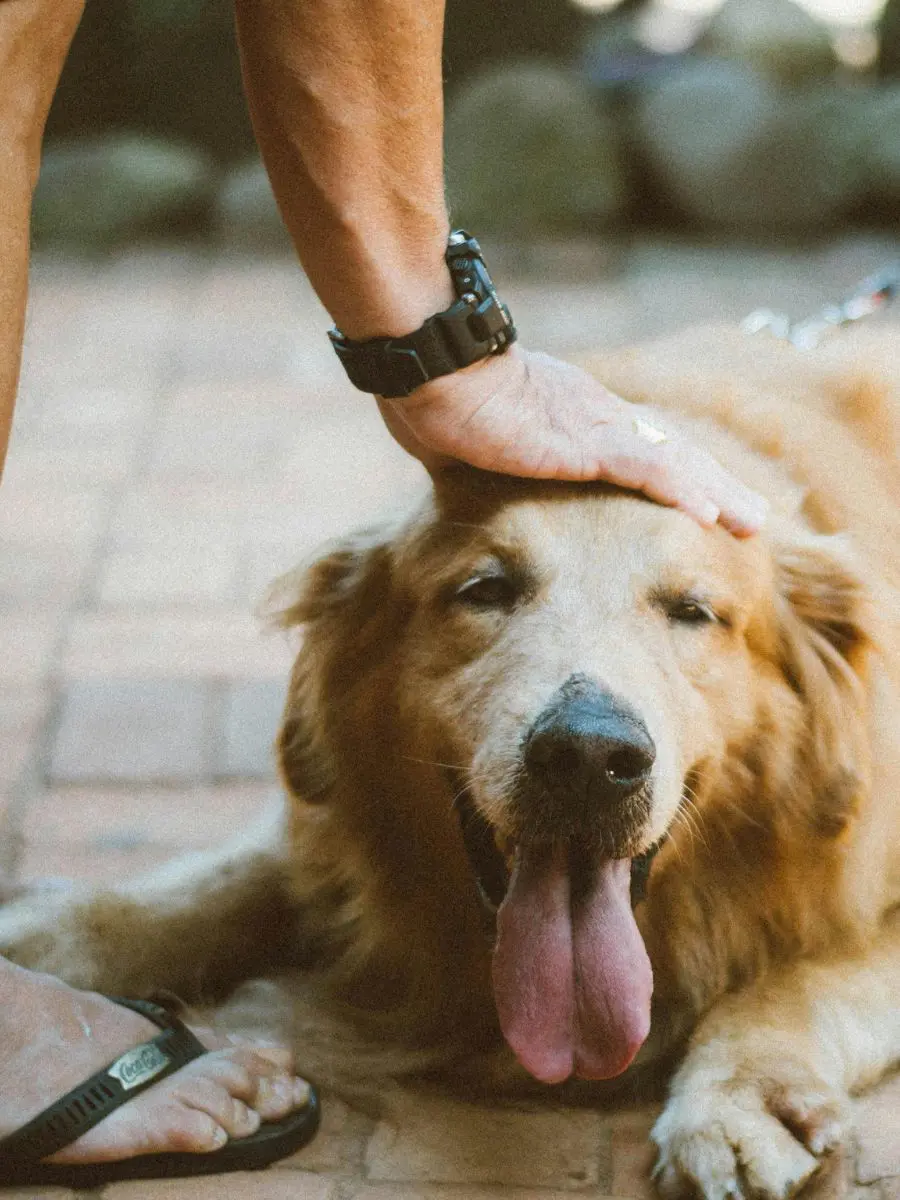
For some dogs, licking their owner's feet serves as self-relaxing behavior. Just as humans might find comfort in repetitive actions like twisting or chewing gum, dogs use licking as a way to calm themselves.
This manner can be particularly noticeable if a dog is feeling anxious, stressed, or overwhelmed. The repetitive nature of darting has a calming effect on many dogs. It can provide them with a sense of security and comfort, similar to how they might seek out a favorite toy or snuggle with a blanket.
The act of flitting creates a predictable and reassuring rhythm, which can help reduce their stress levels and offer a sense of relaxation. When a dog licks your feet, it might be their way of managing their emotions and finding comfort.
6. Medical Issues
If your dog is fixated on licking your feet, it could be a sign of an underlying health issue. Dogs sometimes show obsessive flitting behaviors when they are experiencing discomfort or pain.
Moreover, if you use medications or ointments on your feet, your dog might be attracted to the taste or smell of these substances. The scent of certain creams, lotions, or medicine can be intriguing to dogs, advising them to lick your feet continually. Constant or unusual darting behavior warrants attention, especially if it is accompanied by other signs of distress or ache.
It’s important to observe whether the licking is constant, go along with by signs of pain, or if there are any changes in your dog’s overall behavior or health.
7. Taste And Salt
Dogs are naturally drawn to salty tastes, which is why they might lick your feet, especially if they’ve assembled salt. After a day of sweating or physical activity, your feet can develop salty remains which is why your dog starts to lick your feet.
It's extremely clear if you’ve been walking barefoot or in sandals, as sweat and natural salts accumulate on your skin. Dogs have a keen sense of taste and smell, and the salty flavor can tempt them. This behavior is quite common and can be more definite after activities that increase sweat, like exercise or outdoor play.
The attraction to salty flavors is a natural part of puppy behavior, as salt can be a desirable taste for many dogs.
8. Submission
In the canine world, licking is a significant social behavior, often used to convey submission and respect. This instinctual action is rooted in the dynamics of wild dog packs, where lower-ranking members will lick the faces or bodies of higher-ranking individuals to show deference and maintain social harmony.
When your dog licks your feet, it can be a form of submission, recognizing you as the leader or authoritative figure in their household pack. This behavior reflects their acknowledgment of your role in their social structure.
By engaging in this act, your dog is demonstrating their respect and willingness to adhere to the social hierarchy within your home. Licking as a sign of submission can also reinforce the bond between you and your dog. It signifies their trust and acceptance of you as the primary caregiver and leader.
9. Pheromone Communication
Dogs possess an amazing sense of aroma, capable of observing a wide range of auras and other factual signals that humans produce. Essence is a chemical substance that carries information about an individual’s personality, emotional state, and reproductive status.
Because dogs are highly sensitive to these cues, they often use their sense of fragrance to gather detailed information about their environment and the people around them. Your feet, which are often in contact with various surfaces, such as grass, dirt, and different types of flooring, carry a unique combination of scents and aroma.
These scents can provide dogs with insights into where you’ve been, what you’ve been doing, and even how you’re feeling.
10. Exploration Of New Scents
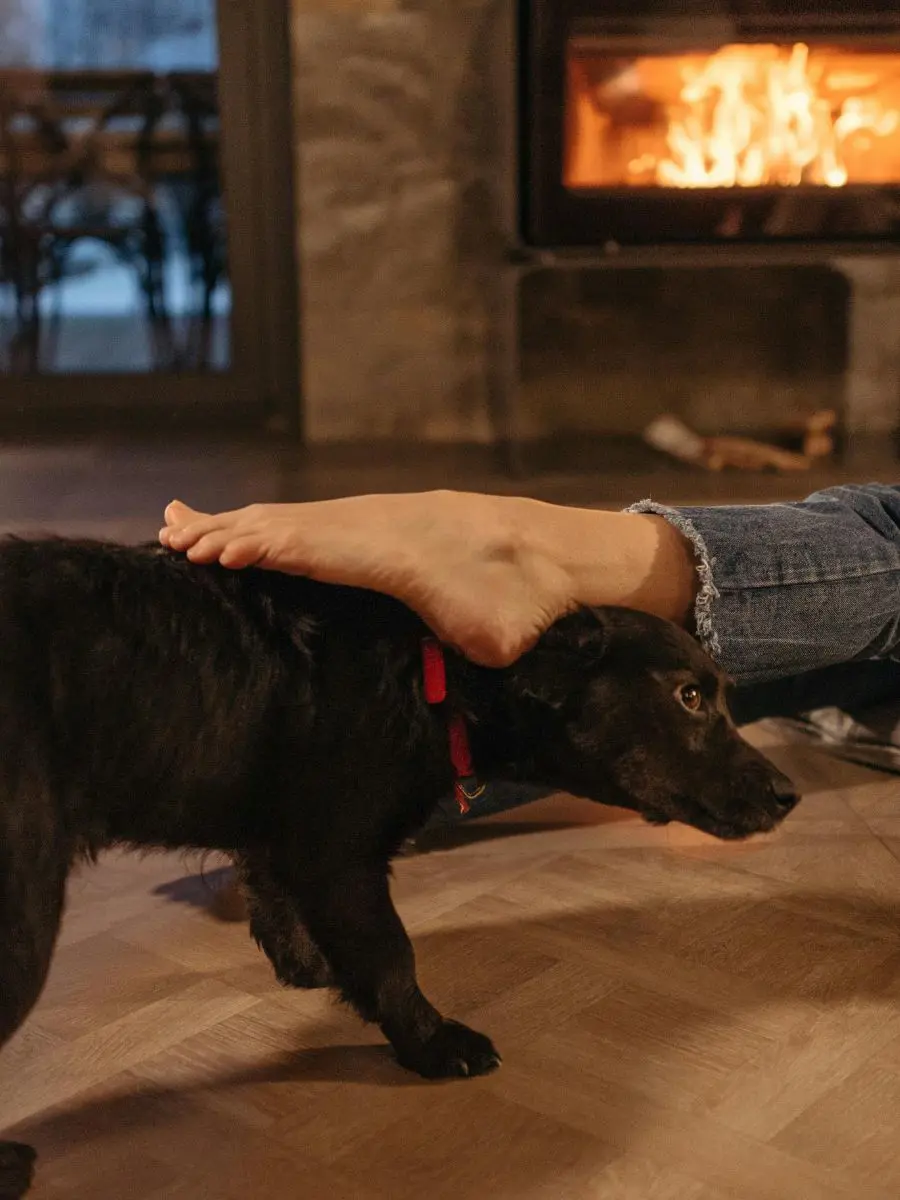
Dogs are natural adventurers, and their sense of smell is a crucial tool for understanding their surroundings. Your feet, which regularly come into contact with various surfaces such as dirt, grass, and different types of flooring, carry a diverse array of scents.
Each surface leaves behind distinct odors that can be fascinating to your dog. When your dog licks your feet, they are engaging in a sensory enquiry to research these new and interesting smells. This behavior allows them to gather information about the different homes you’ve encountered throughout the day.
The unique combination of frangnance from the various places you’ve walked can charm their curiosity and provide them with valuable insights into your activities and surroundings.
11. Reinforcement Of Pack Behavior
Dogs are naturally social animals that control within a pack structure, and their actions are often determined by these gestures. licking is a serious way for dogs to support their place within this hierarchy and strengthen social bonds.
In the wild, dogs use licking to express acceptance, build relationships, and declare their status within the group. When your dog flits your feet, they are engaging in a form of general strength. This behavior can be a way for them to acknowledge and solidify their role within the herd, with you being an essential and valued member.
By darting, your dog is signaling their respect and connection, reinforcing the bond between you and them. It displays their acceptance of your role as a leader or important figure in their social form.
12. Comfort During Discomfort
Dogs, much like humans, have their own ways of managing with pain, whether physical or emotional. When a dog licks your feet, it can be a self-soothing behavior that helps them manage feelings of worry or anxiety.
Just as some people might turn to content foods or repetitive actions for well-being, dogs might engage in licking as a form of emotional self-care. The repetitive nature of licking can be calming for a dog. It provides a rhythmic, comforting activity that can help reduce stress or discomfort.
If your dog is feeling restless or is experiencing pain, licking your feet might offer them a sense of compassion and security. This behavior helps them to feel more at ease and can be a way of seeking relief from their trusted human companion.
13. Playful Behavior
For some dogs, licking can be a lively attitude, mainly when they are in a gentle or energetic mood. If your dog is feeling frisky, they might use licking as a way to initiate interaction or as part of their game.
This action often reflects their desire to engage with you and involve you in their playtime. When a dog licks your feet in a fun-loving manner, it can go along with other jolly signals such as wagging their tail, jumping, or presenting toys. The act of flitting might be part of their attempt to get you to respond, whether by laughing, moving, or engaging in a game.
Some dogs find the act of licking themselves entertaining, and they might continue to do it simply because they enjoy the interaction and the attention it brings.
14. Habitual Behavior
Licking can sometimes grow into constant manners in dogs. If your dog has frequently licked your feet, they may continue this action out of routine, even if the original reason for licking is no longer present.
Dogs are creatures of habit, and once an attitude becomes initiated, it can carry on as part of their daily interactions. Routines develop when a action is repeated over time, often becoming a quality part of a dog's routine.
If your dog has consistently licked your feet in the past, they might continue to do so simply because it has become a familiar and expected action. This continuous licking might not necessarily mark a specific need or emotion but rather a settled part of their behavioral pattern.
15. Stress Relief
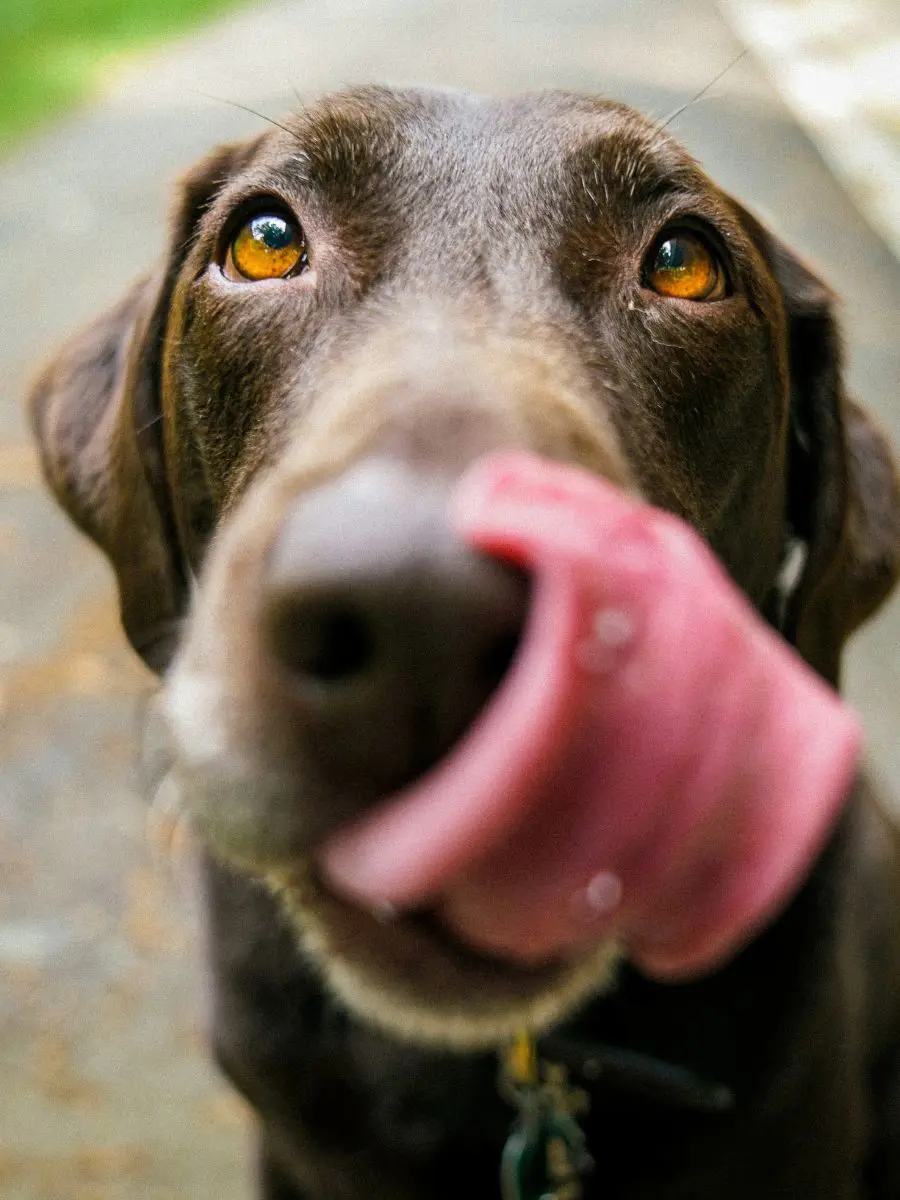
Licking can serve as a tension ease process for some dogs. Much like how people might step, twist, or engage in repetitive actions when anxious or stressed, dogs may use licking as a way to manage their feelings of unease.
The act of flitting can be soothing and help reduce anxiety by providing a consoling and tiresome action. When a dog licks your feet, it may be their way of coping with stress or nervousness. This behavior can be particularly obvious during times of change, such as moving to a new home, experiencing differences in their daily routine, or dealing with strange situations.
The repetitive shofting of licking can help calm their nerves and offer a sense of comfort.
16. Exploration Of Footwear Scents
Dogs have a keen sense of aroma and are naturally curious about the scents they run into. If you frequently wear different types of footwear, your shoes and socks can carry a range of intriguing odors from the various surroundings you've walked through.
These scents might include traces of grass, dirt, pavement, or even the specific odor of places you've visited. When your dog licks your feet, they might be drawn to these diverse and fascinating fragrances. Each type of footwear can leave behind unique odors that pique your dog’s curiosity.
By licking your feet, your dog is engaging in a form of scent exploration, trying to gather more information about where you've been and what kinds of surfaces you've bumped into.
17. Nurturing Instinct
Taking care of urges seen in mother dogs can impact how dogs relate to their human family members. In the wild, mother dogs lick their puppies as a way to care for them, providing comfort, cleanliness, and emotional sympathy.
This behavior is deeply fixed in their spontaneous reserve and can sometimes extend to their interplay with humans. When your dog licks your feet, it may be an expression of this nurturing desire. By engaging in these efforts, your dog is treating you as a valued member of their pack or family, similar to how a mother dog would care for her puppies.
This act of flitting can be a way for your dog to express their affection and a desire to provide comfort and care.
18. Seeking Reassurance
Dogs often use licking as a way to follow compassion and comfort from their owners, especially when they are feeling insecure or uncertain. If your dog is experiencing anxiety or a sense of self-doubt, licking your feet can be their way of reaching out for consolation and emotional support.
When a dog flits your feet, it might be a signal that they are looking for comfort and a sense of safety. This behavior can be mostly noticeable during stressful situations or when your dog is feeling unsure about their environment. By licking, your dog seeks to connect with you, looking for a solaced response that helps them feel more secure.
This behavior is akin to how some dogs might snuggle, cuddle, or seek physical closeness when they are anxious.
Recent posts
Dogs
Why Do Dogs Pee in the House? 10 Causes And Solutions
Uncontrolled peeing inside the house is usually perceived as a sign of a poorly-disciplined dog. However, it may not always be true as the canine could be suffering from a medical issue or cognitive decline. And, getting made is not the solution as y...
Dog Sleeping Positions And Their Meanings
The diverse sleeping dog positions of our furry companions unveil a fascinating tapestry of behaviors and emotions in the canine realm. From the classic Curler to the enigmatic Superman, each posture conveys a unique message about a dog's well-being ...
Dog In Heat: When It Happens And How Long Does It Last
A female dog will get to the phase of reproduction known as the heat cycle if she has not been spayed. If you have an unspayed female dog, it's vital to understand the stages of her heat cycle. During heat, a canine's conduct may additionally c...
15 Causes of Dog Losing Hair
Occasional hair loss and shedding is a natural physical process in dogs. Seasonal shedding helps remove dead and excessive hair from their body. But, when a dog starts losing excessive hair, it can be a terrifying sight for pet owners. Often, dog par...
18 Signs A Dog is Dying
Recognizing the signs that a dog is dying can be heartbreaking, but it's far more essential to offer comfort in their final days. The signs consist of changes in behavior and constant hunger indicating that it may be time to say good-bye. Owners who...
15 Reasons Why Dogs Eat Poop And How To Stop It
Dogs sometimes engage in odd and unhealthy behaviors, along with ingesting their poop or that of different animals. This habit may be concerning and disgusting for any pup owners. This habit has many motives, however, the secret is locating eff...
